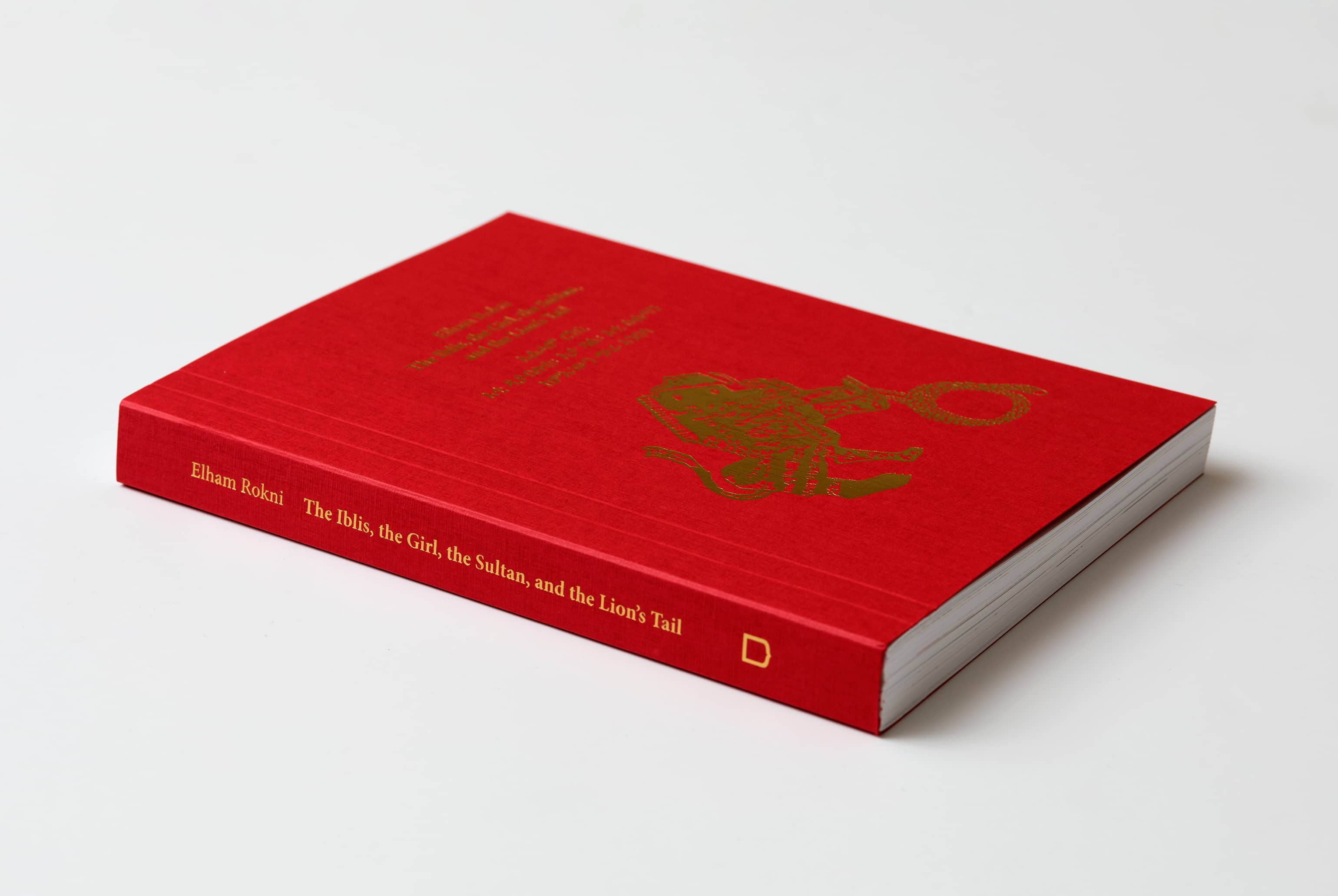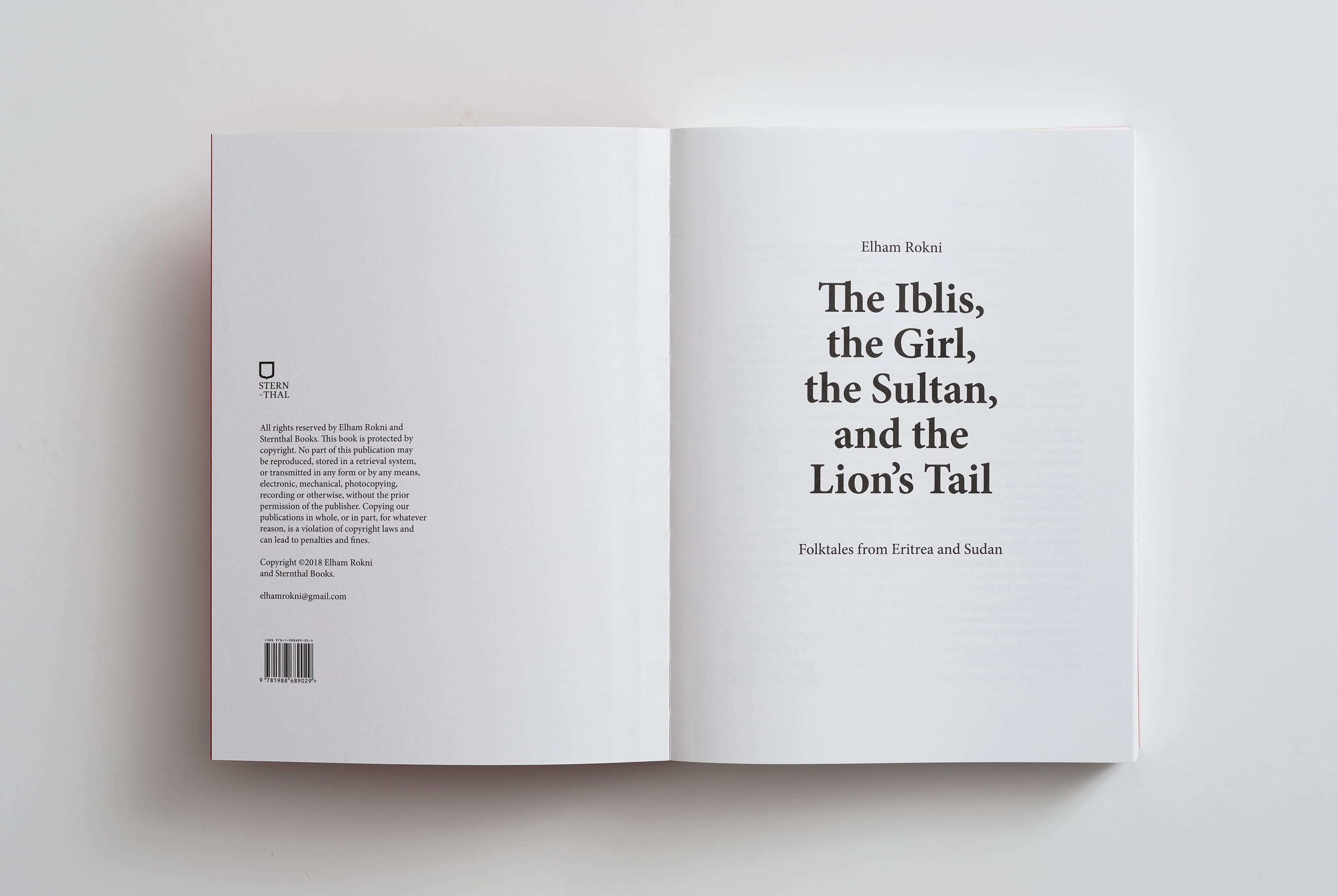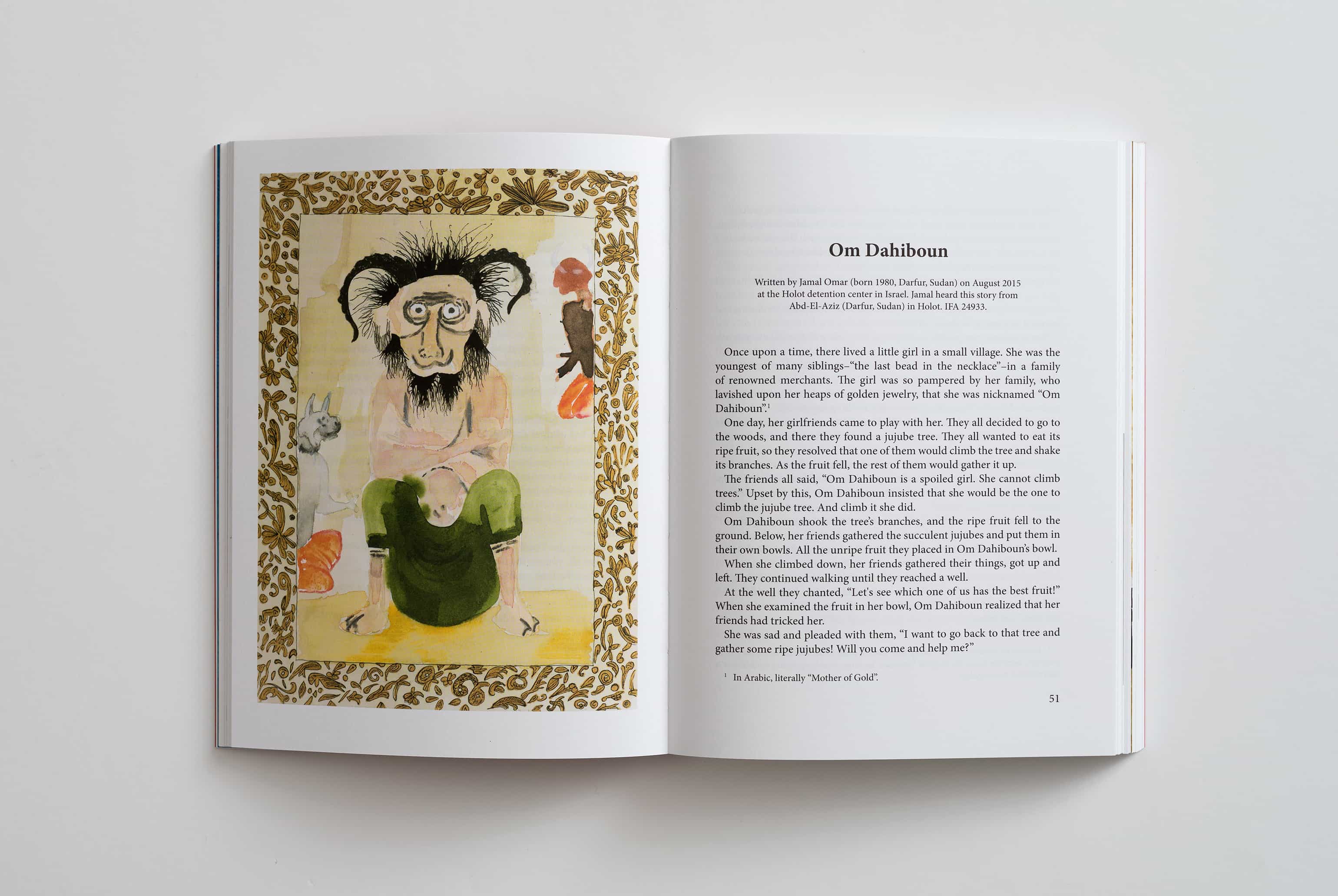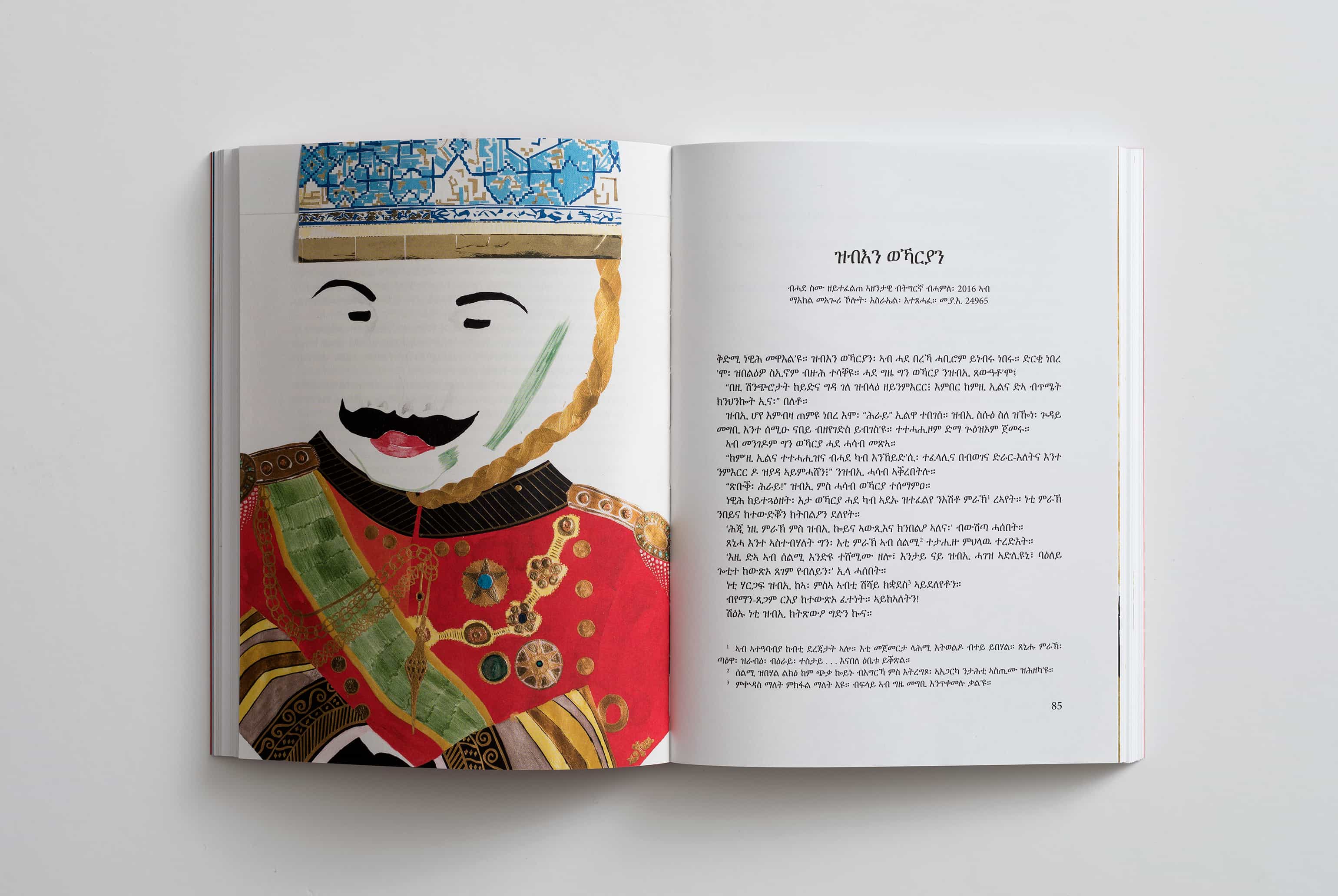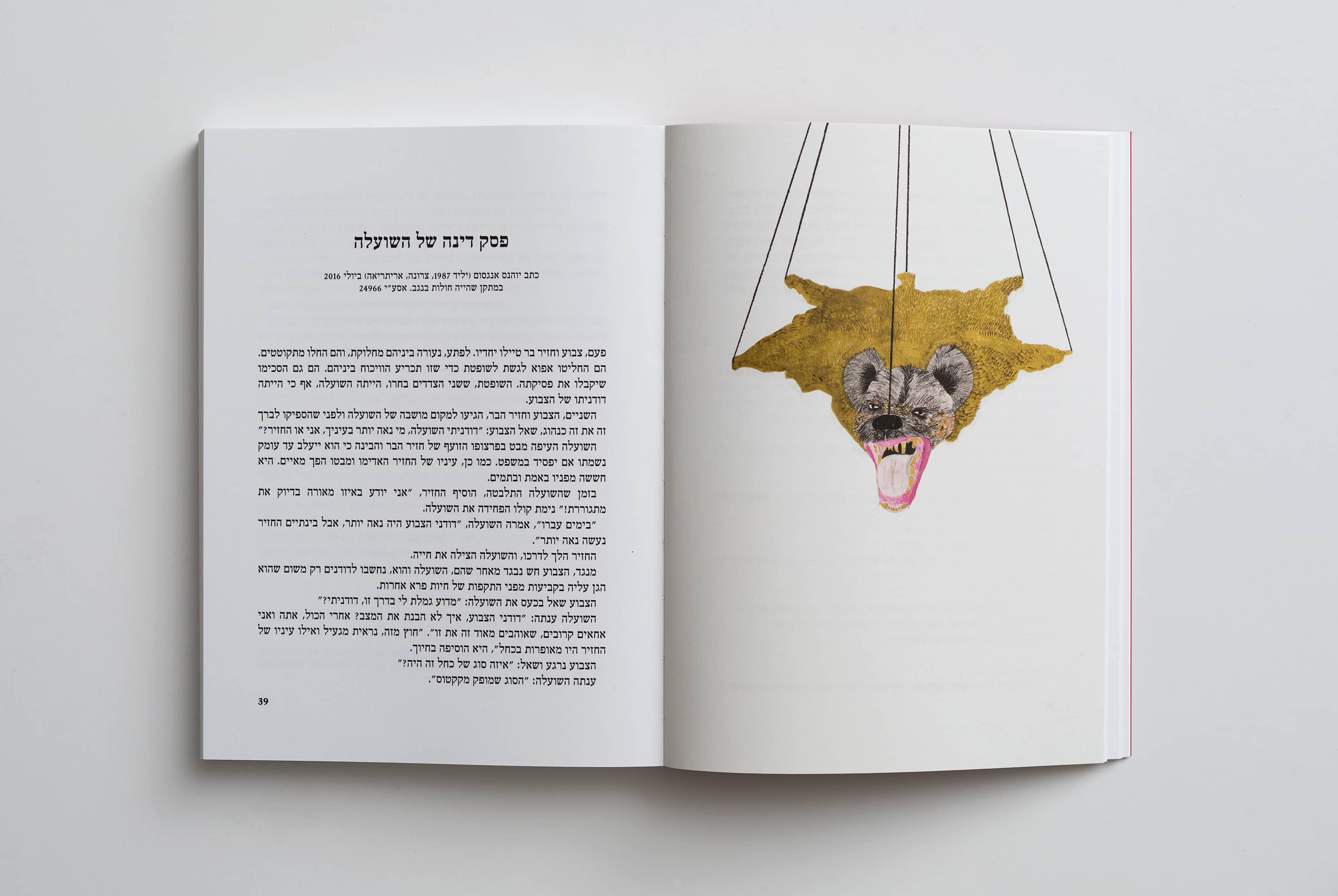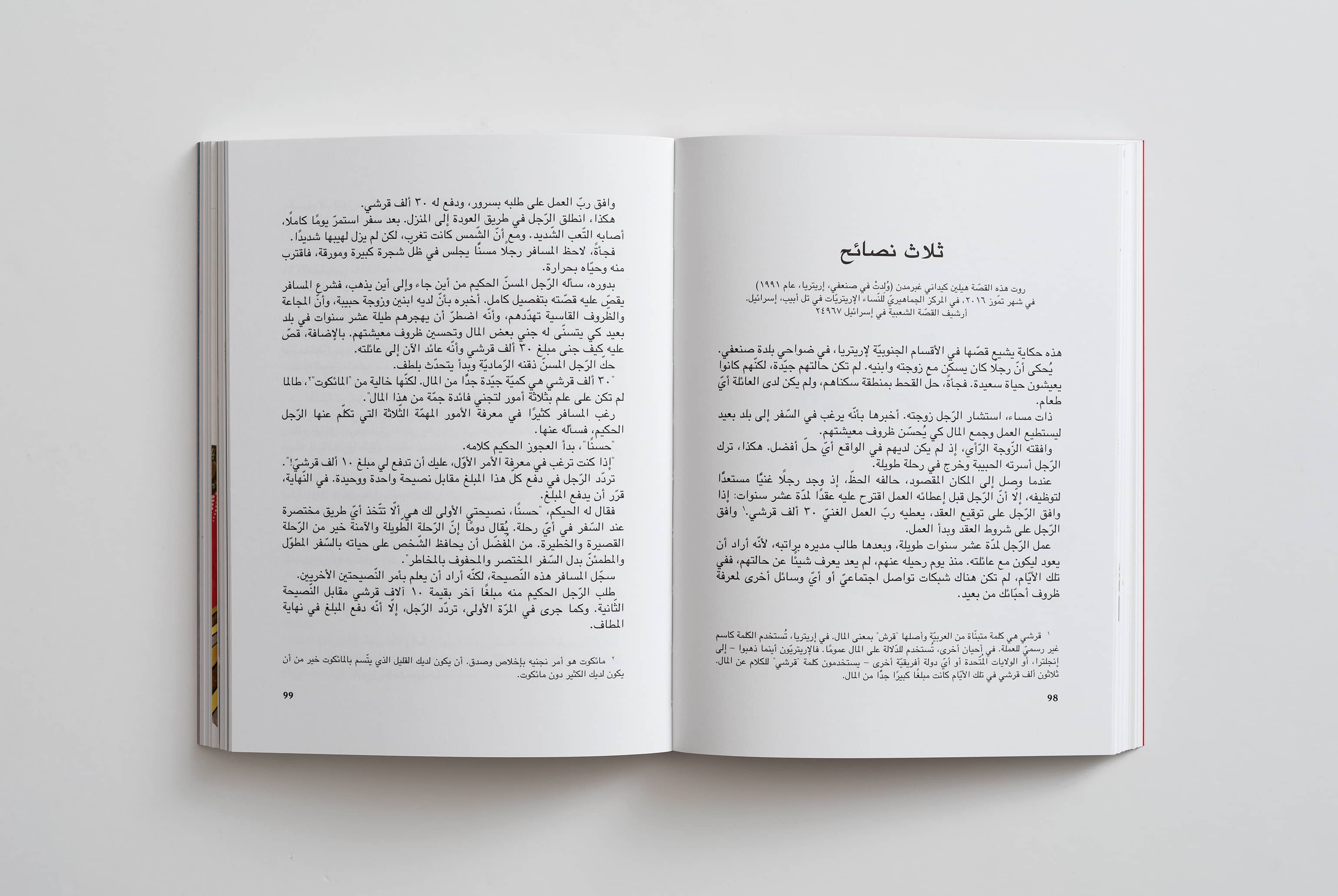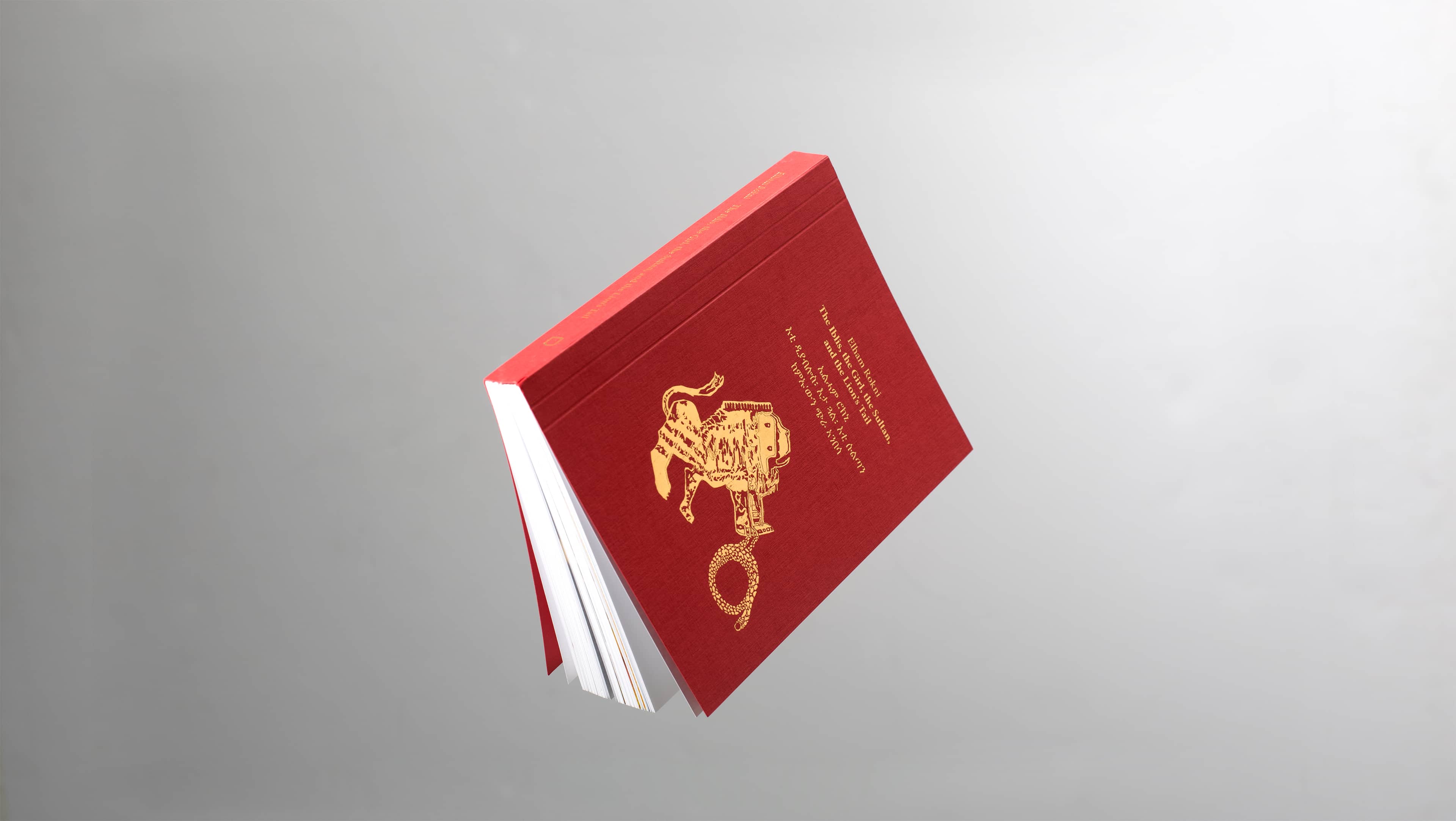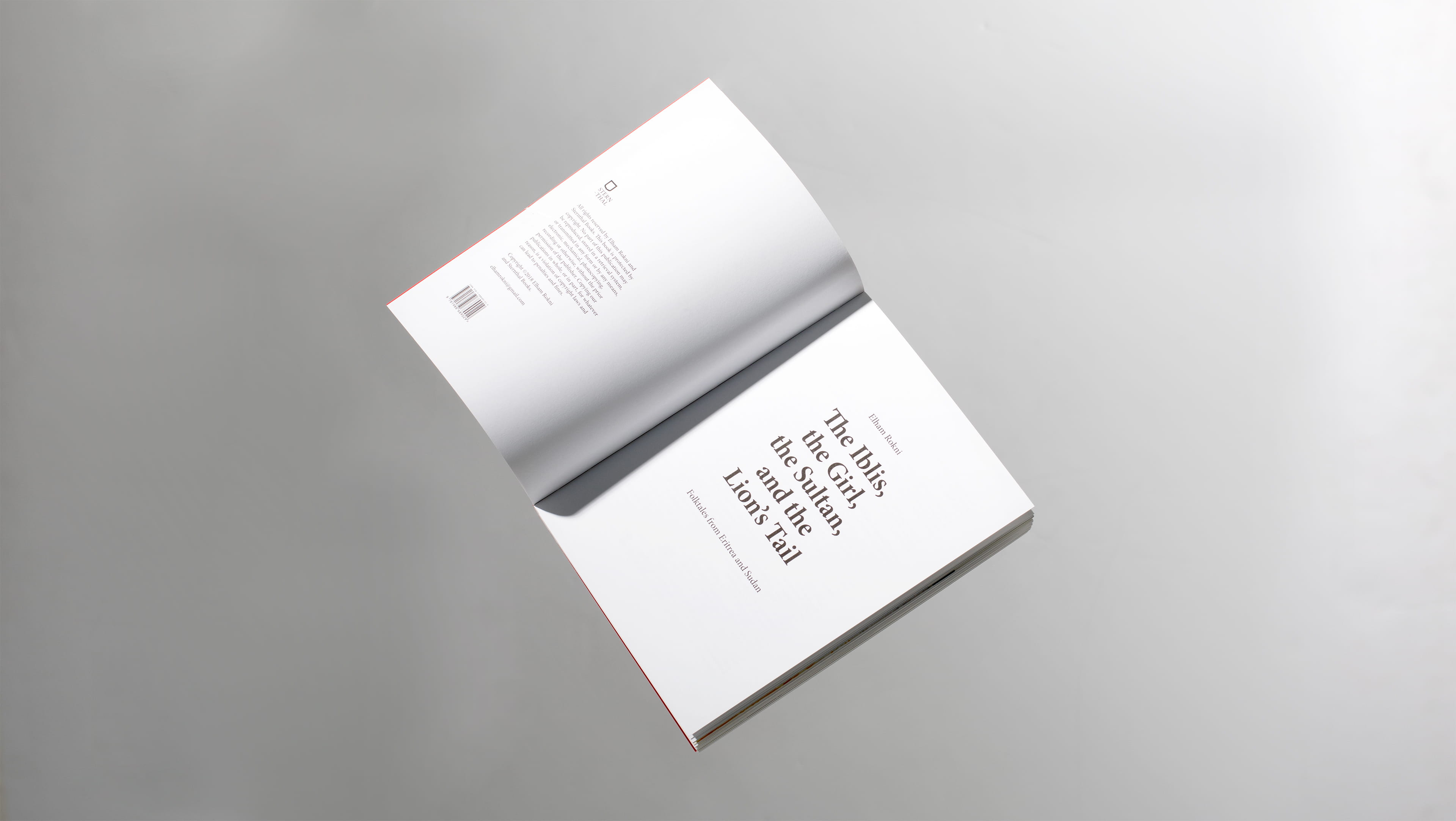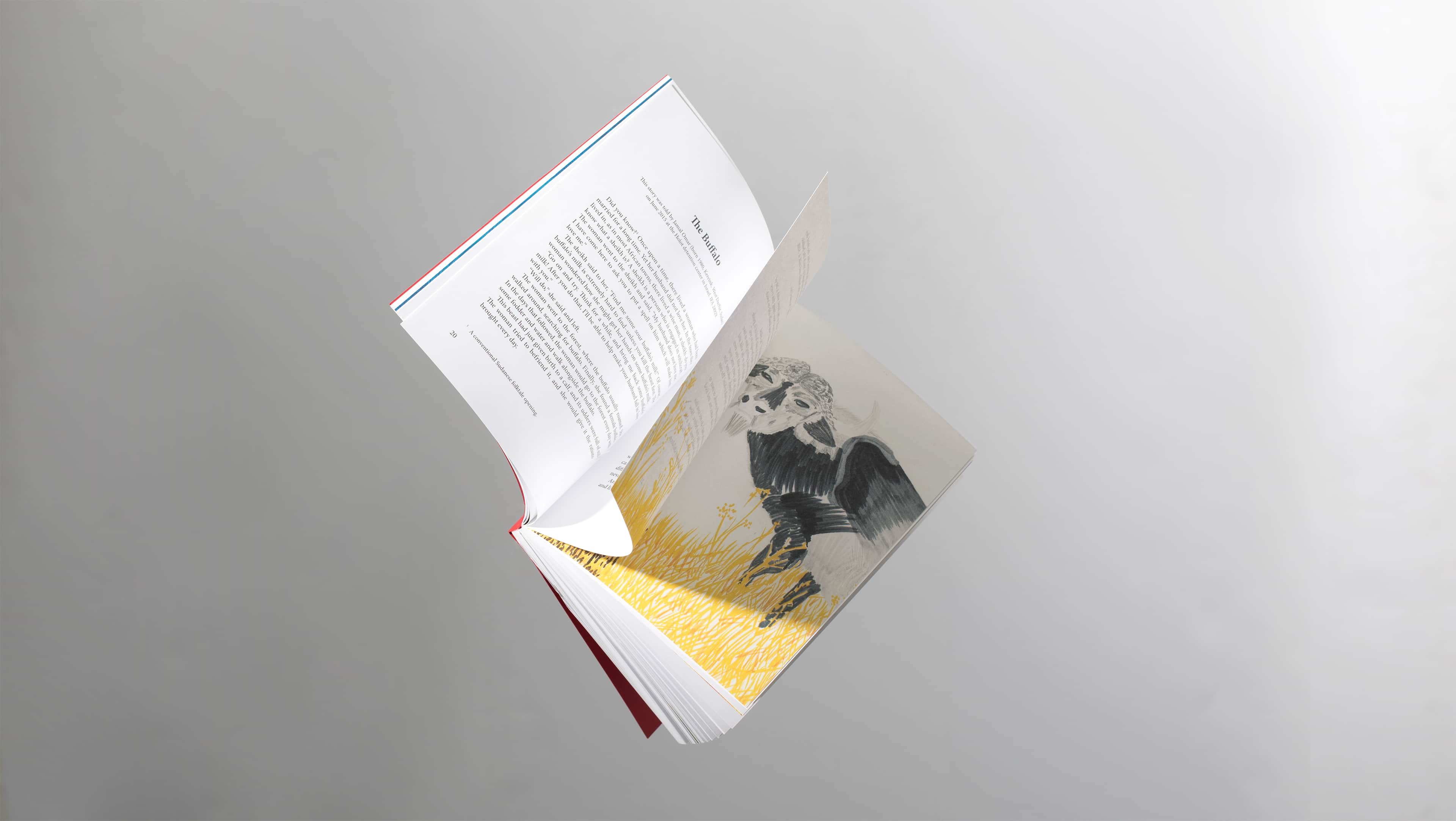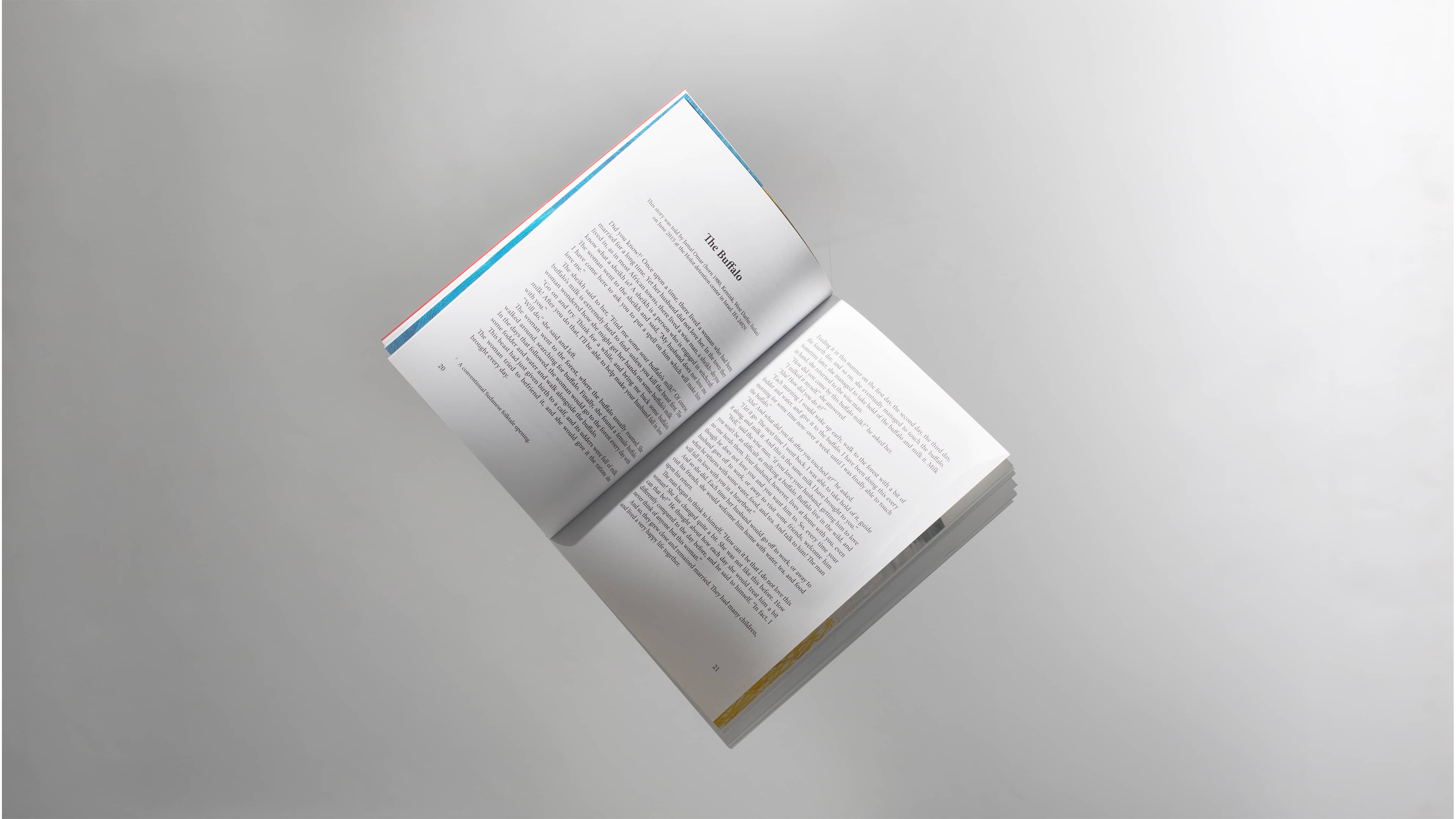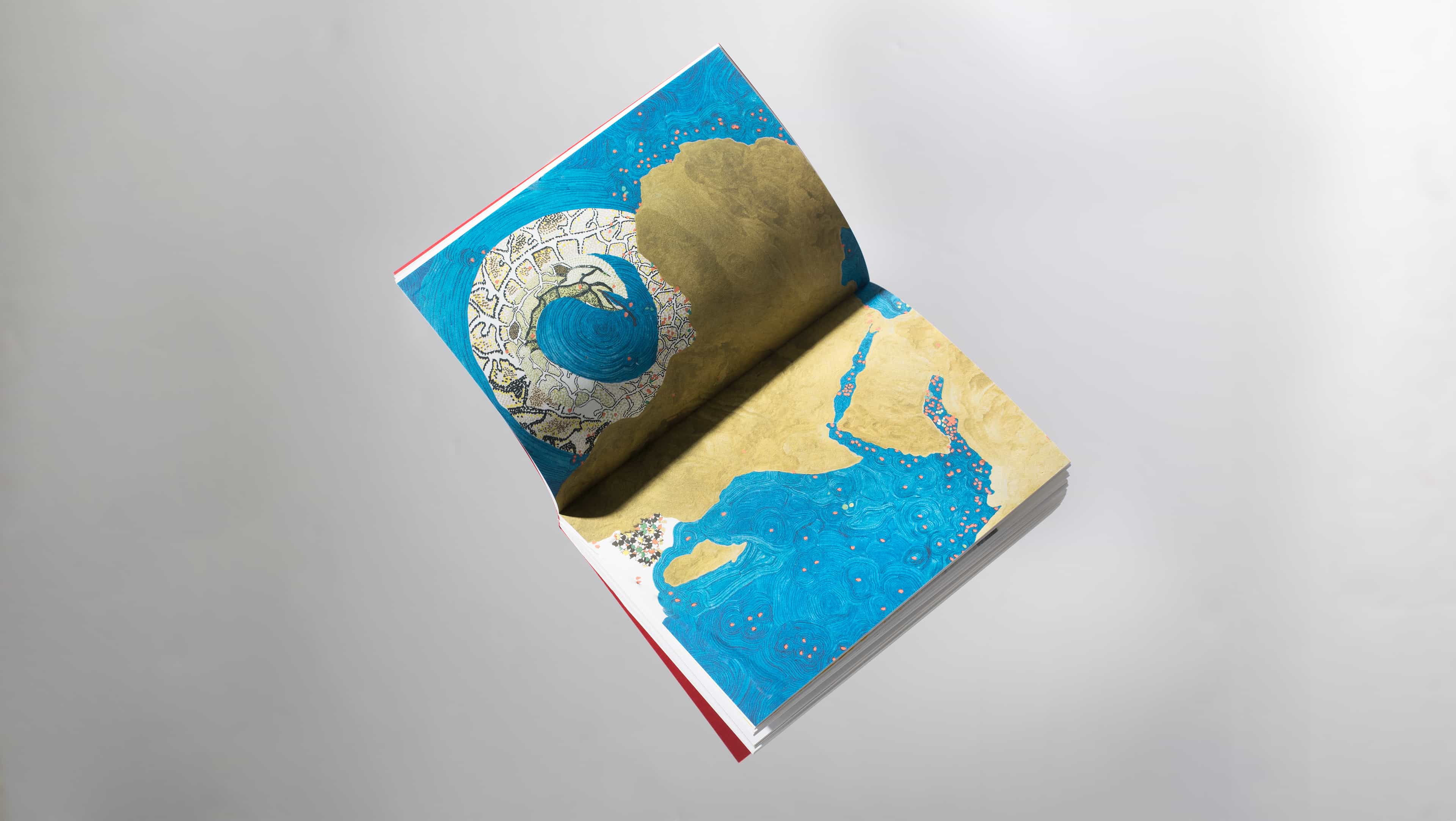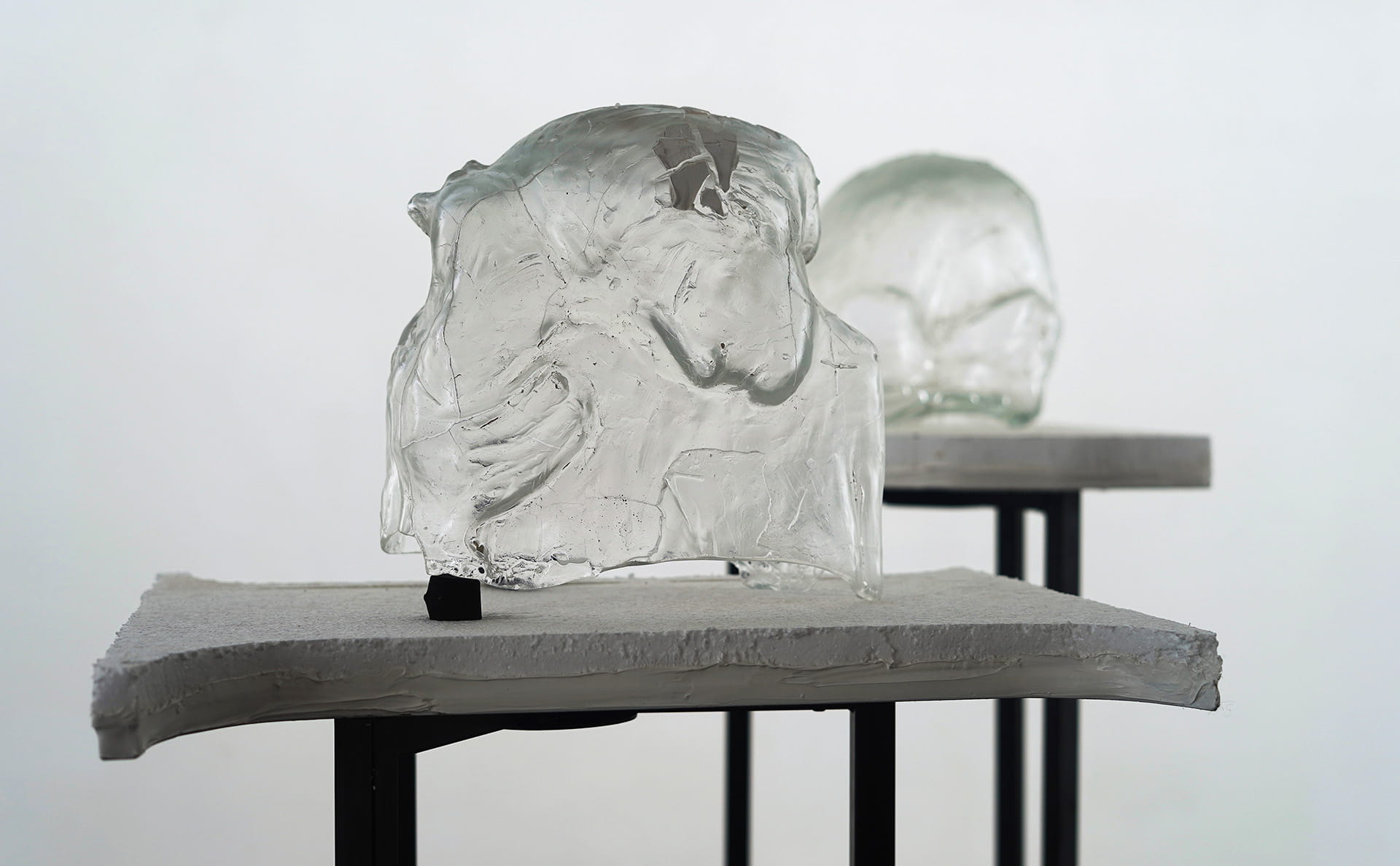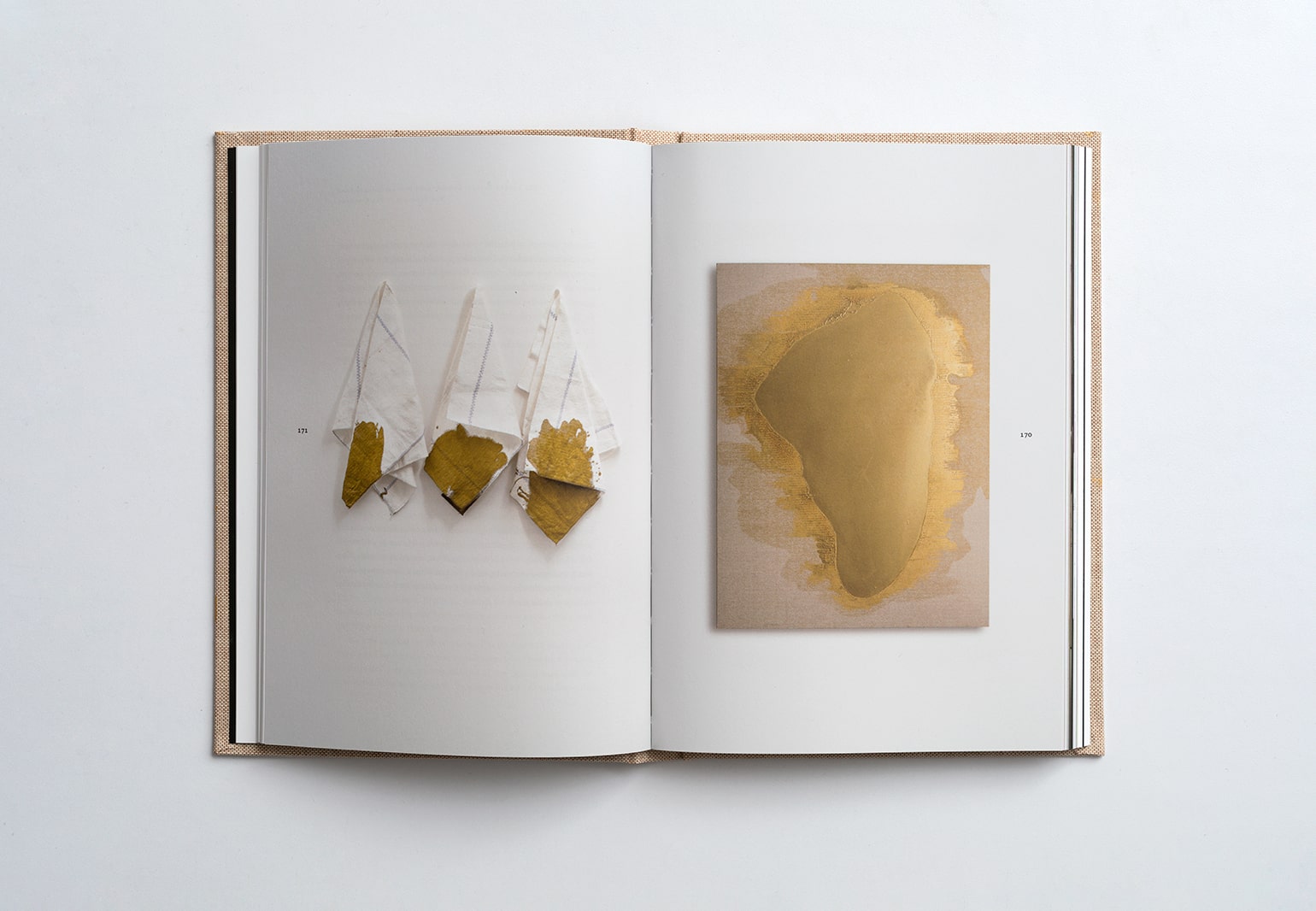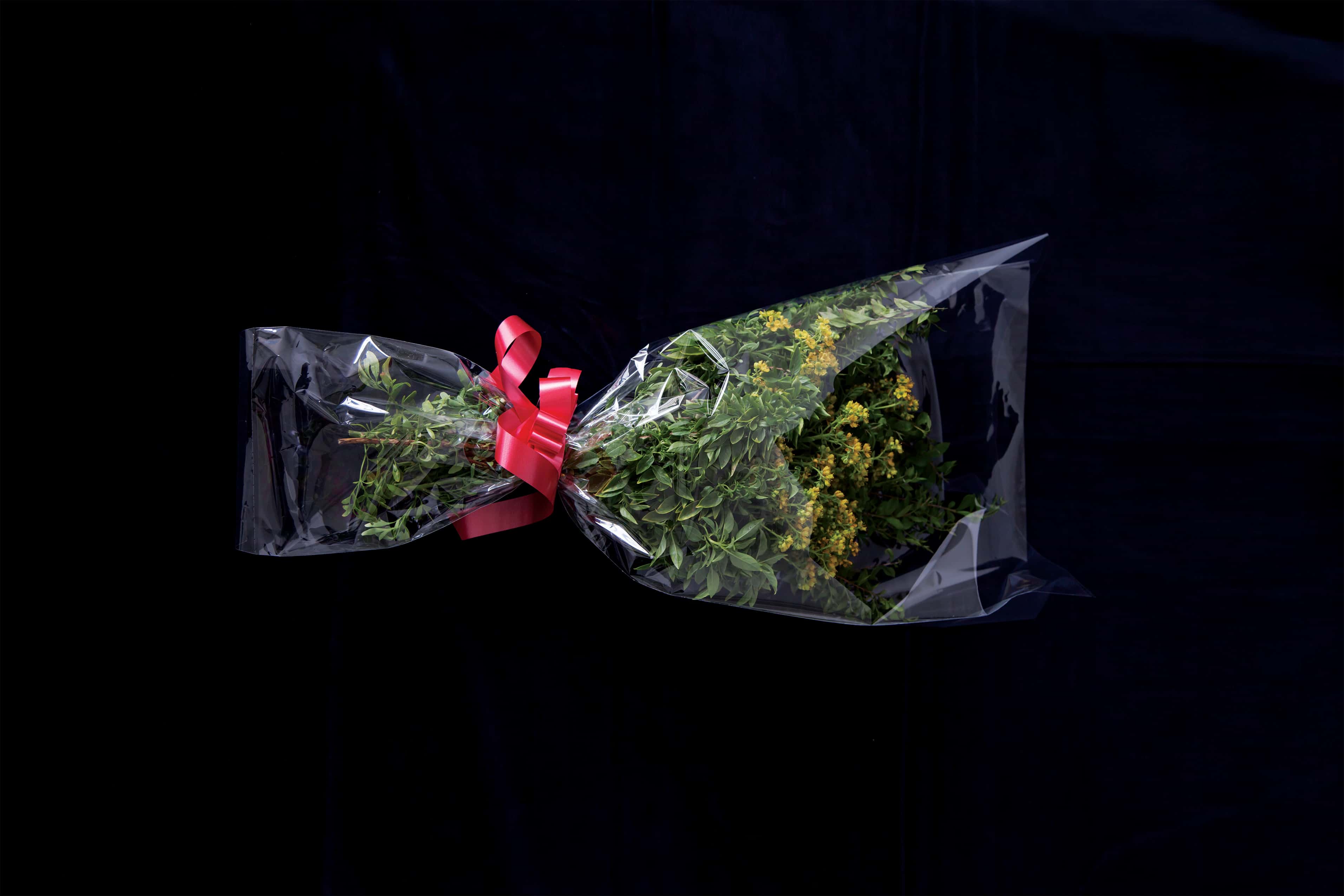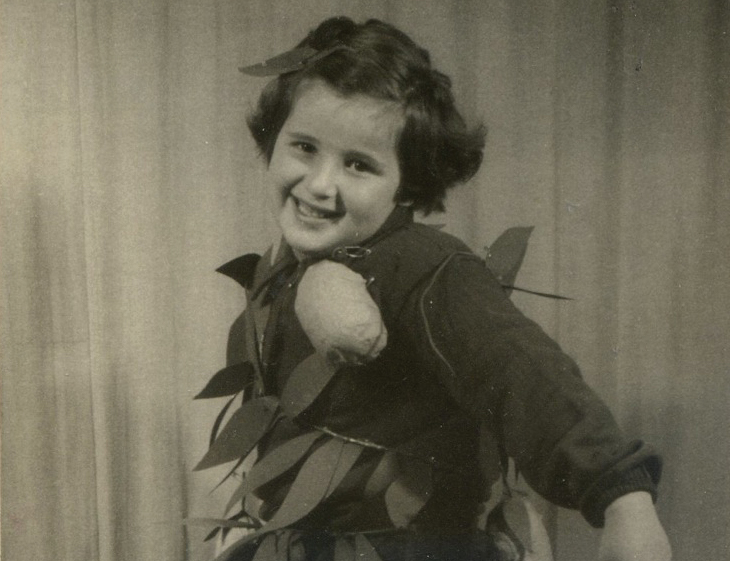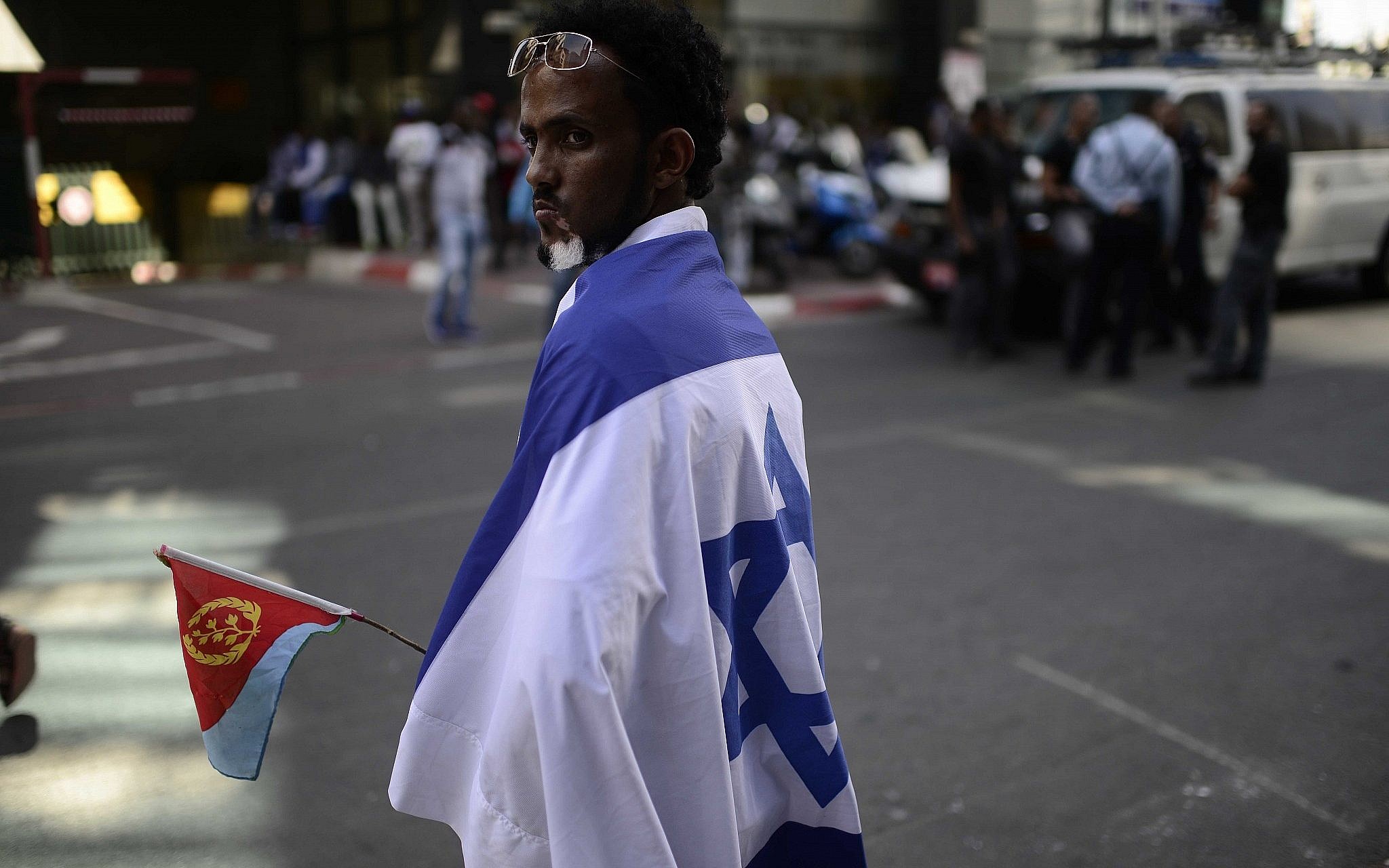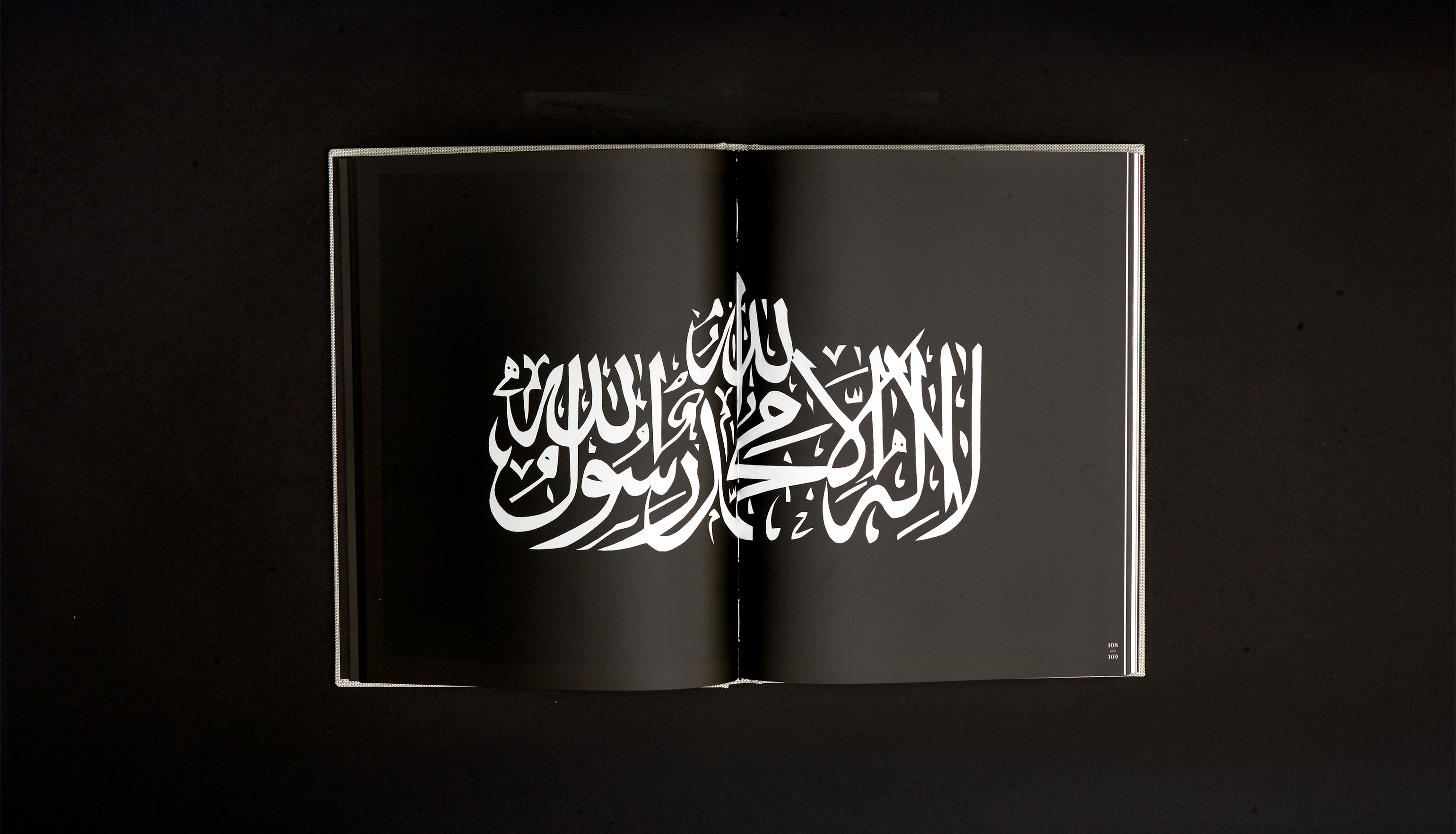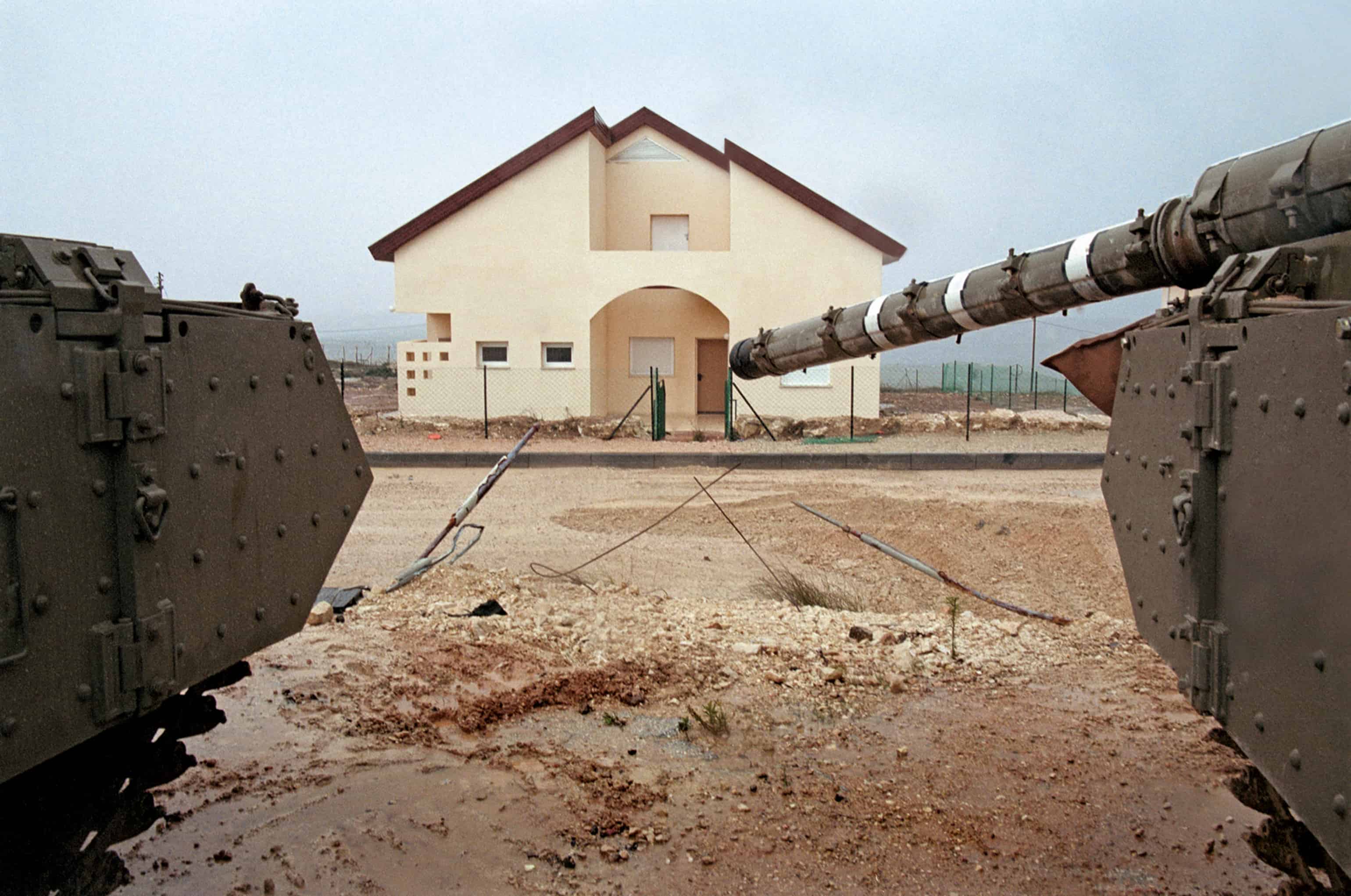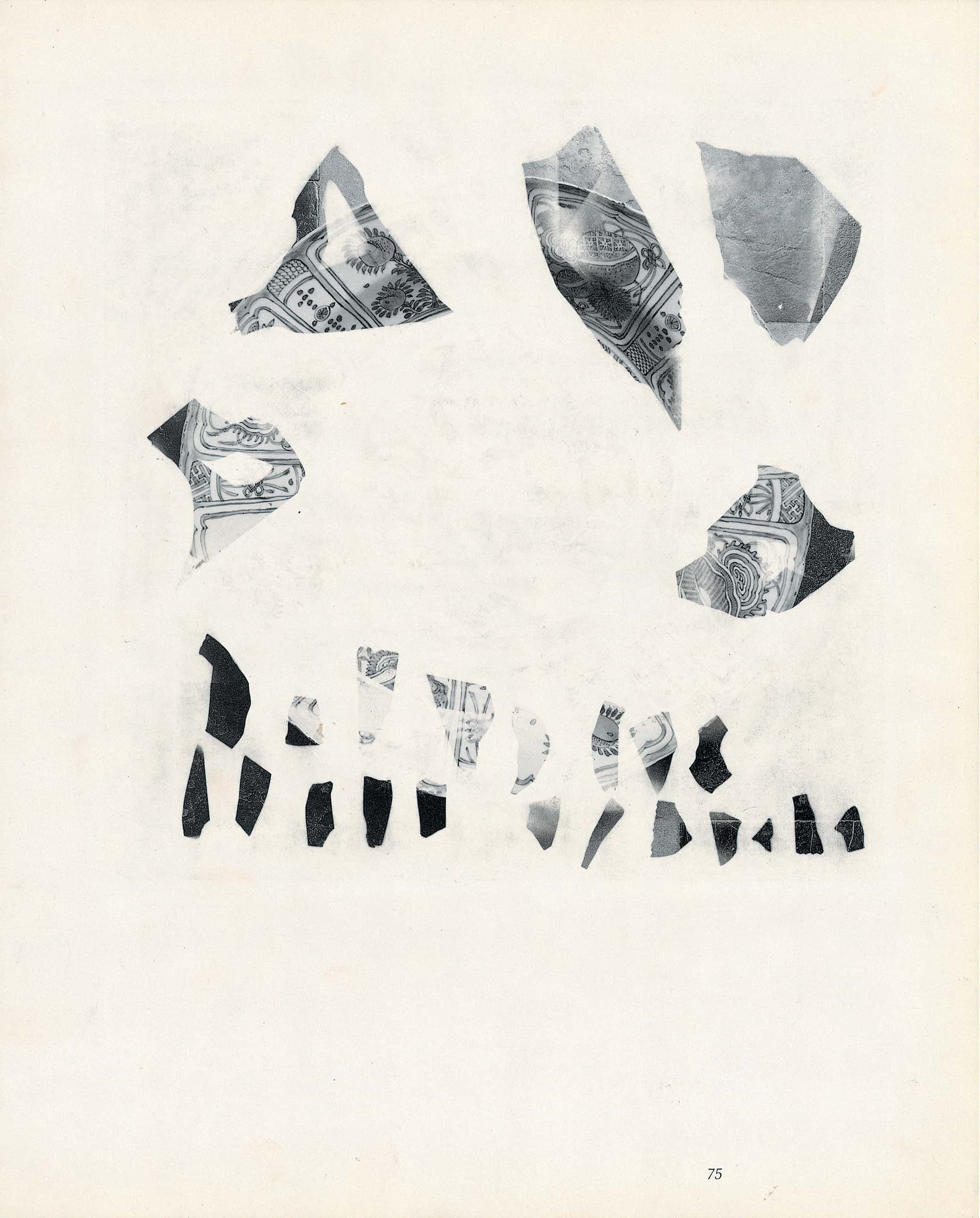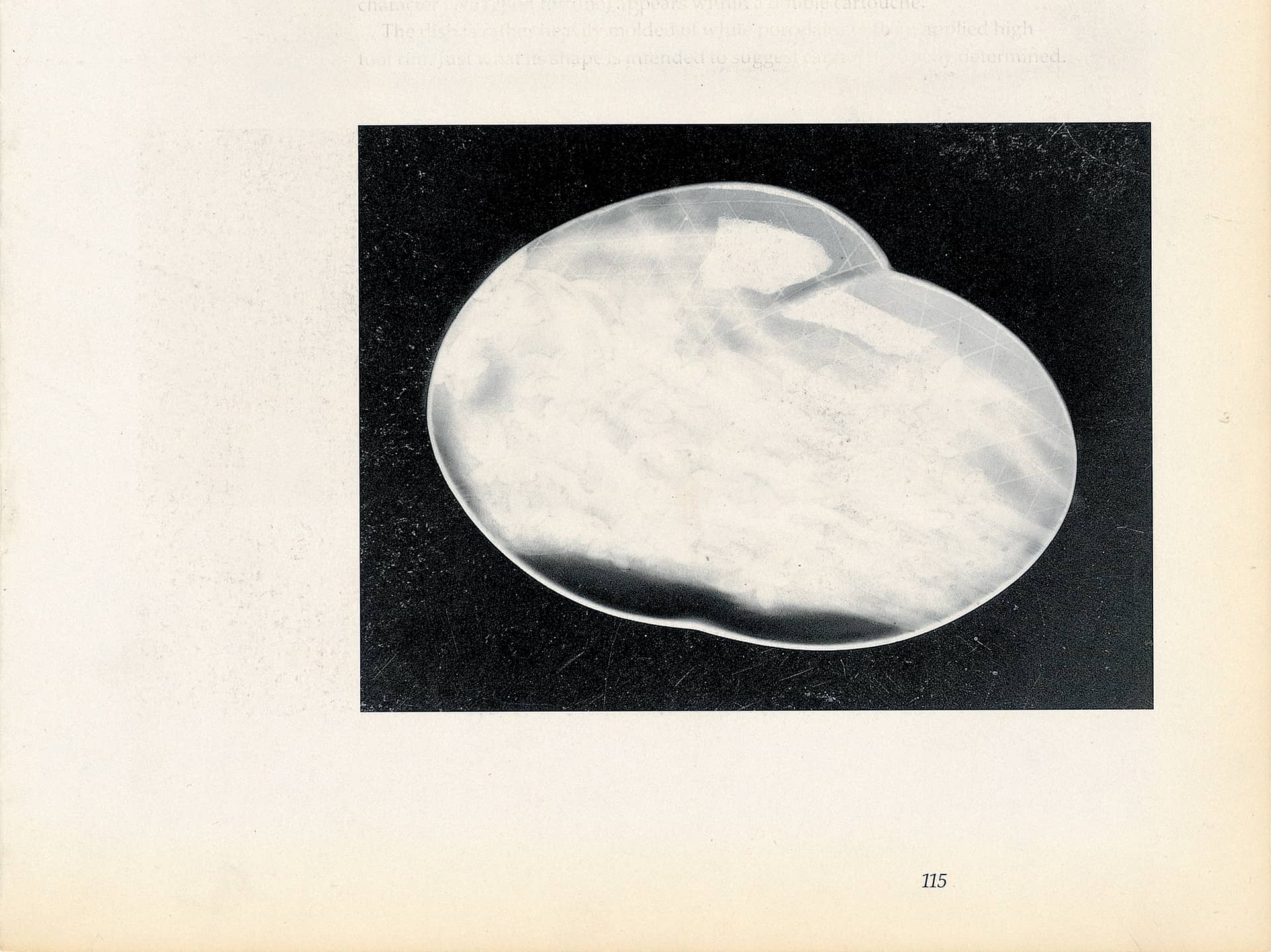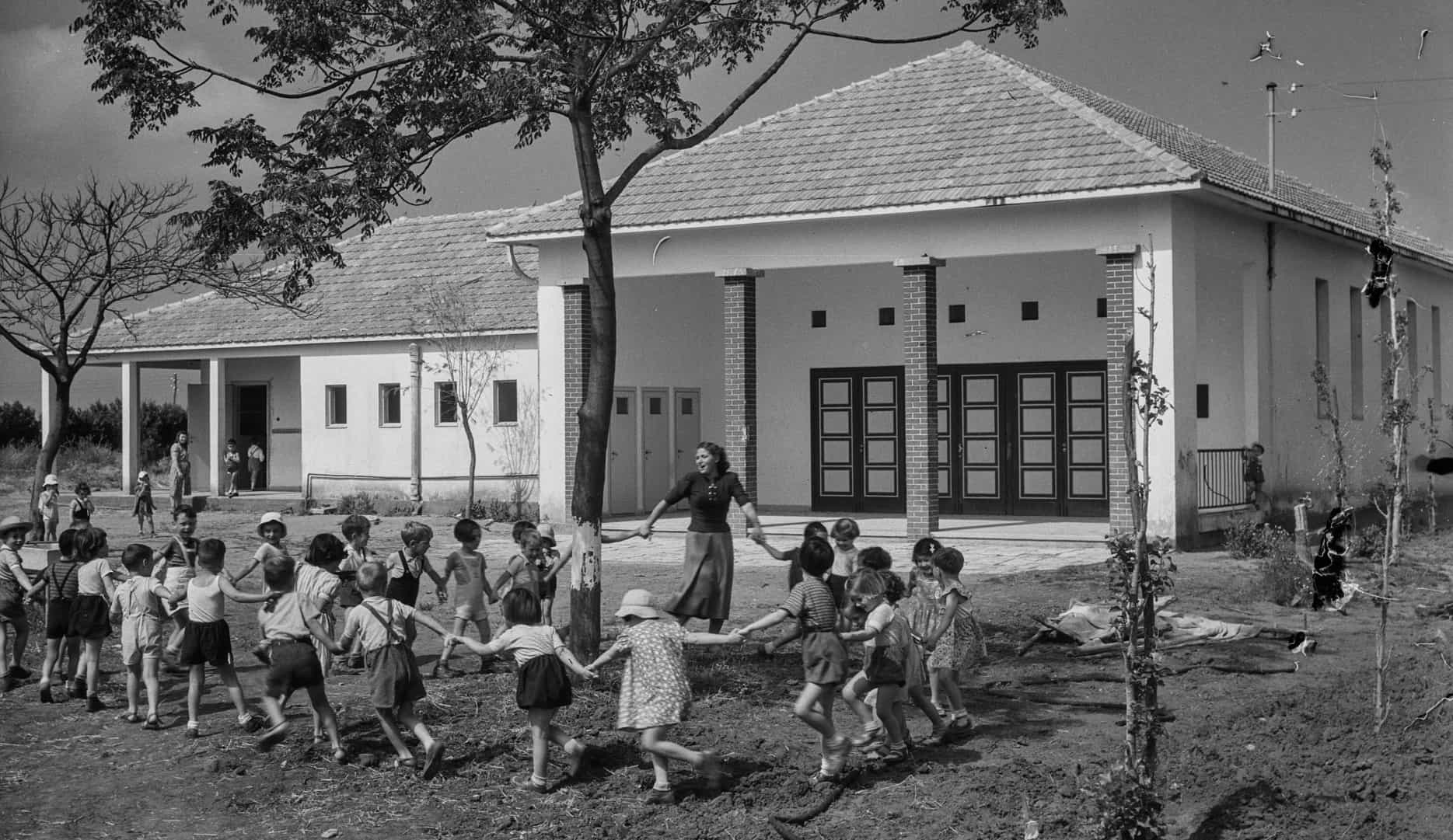Sternthal Books is proud to present our twentieth publication, Elham Rokni’s ‘The Iblis, The Girl, The Sultan, and The Lion’s Tail’, a collection of eighteen folktales collected from Sudanese and Eritrean asylum seekers who have sought refuge in Israel over the past decade, alongside drawings which Rokni created responsively. The eighteen folktales have been registered in The Israel Folktales Archive (IFA), established in 1955, with the goal of documenting and studying various mythologies and narratives passed down amongst newly arrived immigrants. The book is published in English, Hebrew, Tigirinya, and Arabic, and in light of the current political realities, 20 percent from all proceeds will be donated to various NGO’S and civil initiatives which are engaged in helping protect the Refugee community.
The book engages in a double artistic gesture: while the refugees continue to be defamed by Israeli society as a pretext for their impending expulsion, Rokni both highlights their cultural contributions and affirms their ‘appartenance’ to Israeli society. As an immigrant herself, who arrived in Israel at the age of nine, the book continues her own focus on cultural memory, particularly as regards the memory of immigrants, and the political function of remembering in the construction of their hybrid identities. Through this complex series of actions, Rokni has created a book that simultaneously functions as educational and political tool, as well as an artist book.
In her practice, Rokni connects her personal experience as an immigrant to urgent political and ethical issues. She sees the migration of asylum seekers and refugees to Israel as a continuation of previous waves of immigration that characterized the history of this country. More specifically, the artist is interested in the notions of accessibility and free movement related to the dialectical development of globalization, namely, in the free movement of money, goods, services, and elites versus the reality in fortified nations and communities, surrounded by separation walls and other barriers.
When Rokni decided to create a work with the IFA, she decided to focus on collecting new materials, spending over two years doing field research – contacting organizations such as ASSAF, visiting the Holot detention facility, and distributing flyers, searching for storytellers. Through this process she began to familiarize herself with a population who are usually encountered solely through their politically charged identity as ‘refugees’. As Rokni recounts, the younger generations of asylum seekers are becoming so integrated within Israeli culture, that they are losing the link to their origins, “I was thinking of how this book could be used by families to bridge the generational gap – allowing each generation to read and engage with the same stories in their various languages.”
The book is published in conjunction with the artist’s solo exhibition at The CCA, titled ‘The Seven AbdulKarim’s’, which presents the drawings alongside a video which borrows storylines from the folktales, and integrates them into the refugee’s contemporary political experience. Elham Rokni’s (*1980, Tehran, Iran; lives and works in Tel Aviv) work has been the subject of solo exhibitions at New Gallery in Höhmannhaus in Augsburg, Germany; Shulamit Nazarian in Venice, California; 18th Street Arts Center in Santa Monica, California; Tel Aviv Museum of Art, The Artists House in Jerusalem and The Janco-Dada Museum in Ein Hod, Israel, amongst many others.
